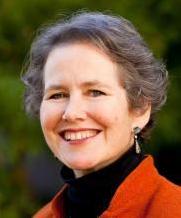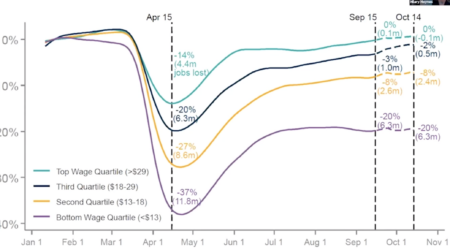Recorded on January 29, 2021, this video features Joshua A. Tucker, Professor of Politics, affiliated Professor of Russian and Slavic Studies, and affiliated Professor of Data Science at New York University. In his lecture, Tucker discussed his recent research, which focused on understanding how well can ordinary people do in identifying the veracity of news in real time.
Using a unique research design, Tucker compared the performance of both ordinary citizens and professional fact checkers in identifying fake news, and gained insights into the individual-level characteristics of those likely to incorrectly identify false news stories as true. He also researched what interventions can reduce the prevalence of this behavior, and the prospects for crowdsourcing to serve as a viable means for identifying false news stories in real time. He also reported preliminary findings from a replication of this study focusing exclusively on news about COVID-19.
This lecture was presented as part of the “Solidarity and Strife: Democracies in a Time of Pandemic” initiative, funded by the Social Science Research Council (SSRC) and co-sponsored by Social Science Matrix and the D-Lab at the University of California, Berkeley.
“I’m going to try to give you answers to the following five questions,” Tucker said. “The first is, how often do ordinary people believe fake news when they encounter it online, and crucially, when do they do so in real time? The second question is, what individual-level characteristics are associated with susceptibility to believing fake news? The third is, do these findings…change when we move from traditional fake news around more political and hard news issues, to when we move to fake news around COVID-19? We might think that this might change a bit when someone’s health is at risk. The fourth is whether or not there are certain task flows we can enact that will reduce the likelihood of people believing fake news. And fifth is whether or not we can crowdsource fact checking fake news.”
Tucker said that his research revealed that people in general fare poorly at spotting fake news when they see it. “Unfortunately, untrained people are not particularly good at identifying fake news,” Tucker said. “And when we look at what types of covariates determine who is better at doing this…the biggest thing that we find that matters has to do with politics, not what we would think of as more conventional demographics.”
An additional challenge, Tucker said, is that people tend to use the internet to corrobate the false information a fake news story contains. “If we send people out into the internet to search for corroboration, to see if they can find additional evidence to see whether a story is false or not, that actually makes people worse,” Tucker said. “Sending them on the internet will actually make people more likely to believe that a false news story is true…. This turns out to take place when there is other corroborating evidence out there on the internet.”


